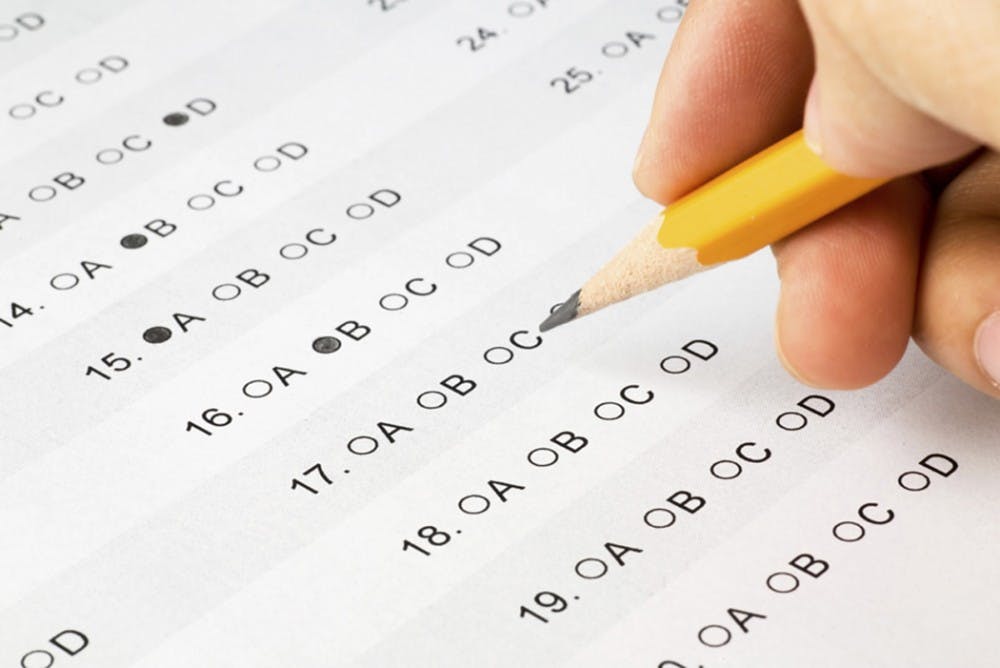Last week, two former educators at a Philadelphia public school pleaded guilty to charges of cheating on standardized tests.
Cayuga Elementary principal Evelyn Cortez and Cayuga teacher Jennifer Hughes were the first to be convicted in the test-cheating scandal that rocked Philadelphia and led to the arrest of eight educators.
Principal Cortez pleaded guilty to perjury, tampering with public records and criminal conspiracy and will be sentenced in late April. Hughes pleaded guilty to one count of criminal conspiracy and was sentenced to three years of probation.
Pennsylvania began investigating irregularities on the Pennsylvania System of School Assessment exam in 2011, following a Philadelphia Inquirer report that suggested cheating explained the increases in test scores.
The Inquirer report noted the suspicious jump in test scores at Theodore Roosevelt Middle School in East Germantown. In two years, 400 students jumped 52 out of 100 points in math and 51 points in English on the statewide PSSA exam.
Principal Stefanie Ressler was praised for her success, but many Roosevelt teachers suspected cheating. According to the Inquirer report, many teachers claimed to have seen answers to the test written on the board, as well as students talking with the principal while possessing the exam booklets.
The Inquirer found that 66 percent of seventh graders at Roosevelt read below grade-level, but 73 percent were found to be proficient or advanced on the PSSA reading test. Pennsylvania’s Department of Education website describes the PSSA as a “standards-based, criterion-referenced assessment which provides students, parents, educators and citizens with an understanding of student and school performance.” The PSSA encompasses English, math, and science and technology exams between grades three and eight.
Graduate School of Education professor John Puckett said, “pressure was building, and the cry was being raised to compel teachers to leverage test scores.” Puckett noted that the problem was most prevalent in Philadelphia and Atlanta. Puckett, who teaches courses on American education reform, said that he was unsurprised by the cheating scandal because of the pressure teachers were under to improve test scores.
Cheating had been “predicted and suspected long before these two cities were spotlighted,” Puckett said. “Teachers were very vulnerable in that they were being blamed as a source of the problem of low test scores, and they were being told they had to get the test scores up.”
“Some principals and teachers simply buckled under the pressure,” Puckett added.
With the rise in standardized testing that followed No Child Left Behind, teachers felt the pressure to raise test scores. Puckett cited the “testing culture that has gone bonkers” and that “our educational leadership is obsessed with test scores, and reigning this in is going to be very difficult.”
Puckett noted that the increases were statistically impossible, but that the “principals were celebrated as models and icons” in their success. He compared these principals to Mark McGwire, a baseball player famous for breaking Babe Ruth’s record but ended up being on steroids. “The analogy in public schools was that these principals and teachers were on steroids with these test scores. You can’t expect that kind of turnaround in one year.”
Some of the teachers involved in the cheating scandal actively erased and corrected students’ answers. Puckett noted that part of what caught officials’ attention was the inordinate amount of correct answers following erased responses. “It was statistically impossible to get the number of correct answers out of erased answers.”
Despite all of this cheating, Philadelphia has not gotten the national attention that Atlanta has with cheating. Puckett said that 225 schools were flagged as suspect statewide in 2013, but only 89 of those schools were investigated. According to Puckett, the Philadelphia schools’ financial problems overshadowed their cheating scandals.
Not only are the schools harmed by the cheating scandals, but also the children are deprived of the resources they need. The false success of the students “masks the need for greater resources in these skills” that were tested by the PSSA, Puckett said.
Their “entire education is being cheated,” Puckett added. Teachers taught to the test and prepared students for these specific exams, when they could have used the time more productively, Puckett said.
“Teaching to the test became a way to raise test scores. And we knew it was coming. Sooner or later, people were going to start cheating on these tests.”









